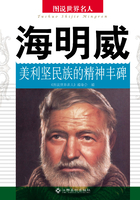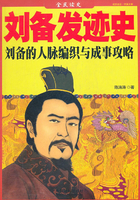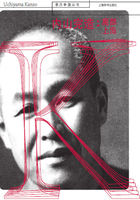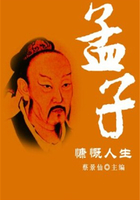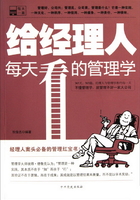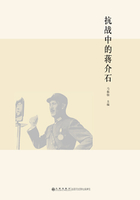1797
Influence of the 18th Fructidor on the negotiations-Bonaparte's suspicion of Bottot-His complaints respecting the non-erasure of Bourrienne-Bourrienne's conversation with the Marquis of Gallo- Bottot writes from Paris to Bonaparte on the part of the Directory Agents of the Directory employed to watch Bonaparte-Influence of the weather on the conclusion of peace-Remarkable observation of Bonaparte-Conclusion of the treaty-The Directory dissatisfied with the terms of the peace-Bonaparte's predilection for representative government-Opinion on Bonaparte.
After the 18th Fructidor Bonaparte was more powerful, Austria less haughty and confident. Venice was the only point of real difficulty. Austria wanted the line of the Adige, with Venice, in exchange for Mayence, and the boundary of the Rhine until that river enters Holland. The Directory wished to have the latter boundary, and to add Mantua to the Italian Republic, without giving up all the line of the Adige and Venice. The difficulties were felt to be so irreconcilable that within about a month of the conclusion of peace the Directory wrote to General Bonaparte that a resumption of hostilities was preferable to the state of uncertainty which was agitating and ruining France. The Directory, therefore, declared that both the armies of the Rhine should take the field. It appears from the Fructidorian correspondence, which has been already given, that the majority of the Directory then looked upon a peace such as Bonaparte afterwards made as infamous.
But Bonaparte, from the moment the Venetian insurrection broke out, perceived that Venice might be used for the pacification. Bonaparte, who was convinced that, in order to bring matters to an issue, Venice and the territory beyond the Adige must fall beneath the Hapsburg sceptre, wrote to the Directory that he could not commence operations, advantageously, before the end of March, 1798; but that if the objections to giving Venice to the Emperor of Austria were persisted in, hostilities would certainly be resumed in the month of October, for the Emperor would not renounce Venice. In that case it would be necessary to be ready on the Rhine for an advance in Germany, as the army of Italy, if it could make head against the Archduke Charles, was not sufficiently strong for any operations on a grand scale. At this period the conclusion of peace was certainly very doubtful; it was even seriously considered in what form the rupture should be notified.
Towards the end of September Bottot, Barras' secretary, arrived at Passeriano. He was despatched by the Directory. Bonaparte immediately suspected he was a new spy, come on a secret mission, to watch him. He was therefore received and treated with coolness; but Bonaparte never had, as Sir Walter Scott asserts, the idea of ordering him to be shot. That writer is also in error when he says that Bottot was sent to Passeriano to reproach Bonaparte for failing to fulfil his promise of sending money to the Directory.
Bonaparte soon gave Bottot an opportunity of judging of the kind of spirit which prevailed at headquarters. He suddenly tendered his resignation, which he had already several times called upon the Directory to accept. He accused the Government, at table, in Bottot's presence, of horrible ingratitude. He recounted all his subjects of complaint, in loud and impassioned language, without any restraint, and before twenty or thirty persons.
Indignant at finding that his reiterated demands for the erasure of my name from the list of emigrants had been slighted, and that, in spite of his representations, conveyed to Paris by General Bernadotte, Louis Bonaparte, and others, I was still included in that fatal list, he apostrophised M. Bottot at dinner one day, before forty individuals, among whom were the diplomatists Gallo, Cobentzel, and Meerweldt. The conversation turned upon the Directory. "Yes, truly," cried Bonaparte, in a loud voice, "I have good reason to complain; and, to pass from great to little things, look, I pray you, at Bourrienne's case. He possesses my most unbounded confidence. He alone is entrusted, under my orders, with all the details of the negotiation. This you well know; and yet your Directory will not strike him off the list. In a word it is not only an inconceivable, but an extremely stupid piece of business; for he has all my secrets; he knows my ultimatum, and could by a single word realize a handsome fortune, and laugh at your obstinacy. Ask M. de Gallo if this be not true."
Bottot wished to offer some excuse; but the general murmur which followed this singular outburst reduced him to silence.
The Marquis de Gallo had conversed with me but three days before, in the park of Passeriano, on the subject of my position with regard to France, of the determination expressed by the Directory not to erase my name, and of the risk I thereby ran. "We have no desire," continued he, "to renew the war; we wish sincerely for peace; but it must be an honourable one. The Republic of Venice presents a large territory for partition, which would be sufficient for both parties. The cessions at present proposed are not, however, satisfactory. We want to know Bonaparte's ultimatum; and I am authorised to offer an estate in Bohemia, with a title and residence, and an annual revenue of 90,000 florins."
I quickly interrupted M. de Gallo, and assured him that both my conscience and my duty obliged me to reject his proposal; and so put at once an end to the conversation.
I took care to let the General-in-Chief know this story, and he was not surprised at my reply. His conviction, however, was strong, from all that M. de Gallo had said, and more particularly from the offer he had made, that Austria was resolved to avoid war, and was anxious for peace.
After I had retired to rest M. Bottot came to my bedroom and asked me, with a feigned surprise, if it was true that my name was still on the list of emigrants. On my replying in the affirmative, he requested me to draw up a note on the subject. This I declined doing, telling him that twenty notes of the kind he required already existed; that I would take no further steps; and that I would henceforth await the decision in a state of perfect inaction.
General Bonaparte thought it quite inexplicable that the Directory should express dissatisfaction at the view he took of the events of the 18th Fructidor, as, without his aid, they would doubtless have been overcome. He wrote a despatch, in which he repeated that his health and his spirits were affected-that he had need of some years' repose-that he could no longer endure the fatigue of riding; but that the prosperity and liberty of his country would always command his warmest interests. In all this there was not a single word of truth. The Directory thought as much, and declined to accept his resignation in the most flattering terms.
Bottot proposed to him, on the part of the Directory, to revolutionise Italy. The General inquired whether the whole of Italy would be included in the plan. The revolutionary commission had, however, been entrusted to Bottot in so indefinite a way that he could only hesitate, and give a vague reply. Bonaparte wished for more precise orders. In the interval peace was concluded, and the idea of that perilous and extravagant undertaking was no longer agitated. Bottot, soon after his return to Paris, wrote a letter to General Bonaparte, in which he complained that the last moments he had passed at Passeriano had deeply afflicted his heart. He said that cruel suspicions had followed him even to the gates of the Directory. These cruel suspicions had, however, been dissipated by the sentiments of admiration and affection which he had found the Directory entertained for the person of Bonaparte.
These assurances, which were precisely what Bonaparte had expected, did not avail to lessen the contempt he entertained for the heads of the Government, nor to change his conviction of their envy and mistrust of himself. To their alleged affection he made no return. Bottot assured the hero of Italy of "the Republican docility" of the Directory, and touched upon the reproaches Bonaparte had thrown out against them, and upon his demands which had not been granted. He said:
"The three armies, of the North, of the Rhine, and of the Sambre-et-Meuse, are to form only one, the army of Germany.-Augereau? But you yourself sent him. The fault committed by the Directory is owing to yourself! Bernadotte?-he is gone to join you. Cacault?-he is recalled. Twelve thousand men for your army?-they are on their march. The treaty with Sardinia?-it is ratified. Bourrienne?-he is erased. The revolution of Italy?-it is adjourned. Advise the Directory, then: I repeat it, they have need of information, and it is to you they look for it."
The assertion regarding me was false. For six months Bonaparte demanded my erasure without being able to obtain it. I was not struck off the list until the 11th of November 1797.
Just before the close of the negotiation Bonaparte, disgusted at the opposition and difficulties with which he was surrounded, reiterated again and again the offer of his resignation, and his wish to have a successor appointed. What augmented his uneasiness was an idea he entertained that the Directory had penetrated his secret, and attributed his powerful concurrence on the 18th Fructidor to the true cause-his personal views of ambition. In spite of the hypocritical assurances of gratitude made to him in writing, and though the Directory knew that his services were indispensable, spies were employed to watch his movements, and to endeavour by means of the persons about him to discover his views. Some of the General's friends wrote to him from Paris, and for my part I never ceased repeating to him that the peace, the power of making which he had in his own hands, would render him far more popular than the renewal of hostilities undertaken with all the chances of success and reverse. The signing of the peace, according to his own ideas, and in opposition to those of the Directory, the way in which he just halted at Rastadt, and avoided returning to the Congress, and, finally, his resolution to expatriate himself with an army in order to attempt new enterprises, sprung more than is generally believed from the ruling idea that he was distrusted, and that his ruin was meditated. He often recalled to mind what La Vallette had written to him about his conversation with Lacuee; and all he saw and heard confirmed the impression he had received on this subject.
The early appearance of bad weather precipitated his determination. On the 13th of October, at daybreak, on opening my window, I perceived the mountains covered with snow. The previous night had been superb, and the autumn till then promised to be fine and late. I proceeded, as I always did, at seven o'clock in the morning, to the General's chamber. I woke him, and told him what I had seen. He feigned at first to disbelieve me, then leaped from his bed, ran to the window, and, convinced of the sudden change, he calmly said, "What! before the middle of October! What a country is this! Well, we must make peace!" While he hastily put on his clothes I read the journals to him, as was my daily custom. He paid but little attention to them.
Shutting himself up with me in his closet, he reviewed with the greatest care all the returns from the different corps of his army. "Here are," said he, "nearly 80,000 effective men. I feed, I pay them: but I can bring but 60,000 into the field on the day of battle. I shall gain it, but afterwards my force will be reduced 20,000 men-by killed, wounded, and prisoners. Then how oppose all the Austrian forces that will march to the protection of Vienna? It would be a month before the armies of the Rhine could support me, if they should be able; and in a fortnight all the roads and passages will be covered deep with snow. It is settled-I will make peace. Venice shall pay for the expense of the war and the boundary of the Rhine: let the Directory and the lawyers say what they like."
He wrote to the Directory in the following words: "The summits of the hills are covered with snow; I cannot, on account of the stipulations agreed to for the recommencement of hostilities, begin before five-and-twenty days, and by that time we shall be overwhelmed with snow."
Fourteen years after, another early winter, in a more severe climate, was destined to have a fatal influence on his fortunes. Had he but then exercised equal foresight!
It is well known that, by the treaty of Campo-Formio, the two belligerent powers made peace at the expense of the Republic of Venice, which had nothing to do with the quarrel in the first instance, and which only interfered at a late period, probably against her own inclination, and impelled by the force of inevitable circumstances. But what has been the result of this great political spoliation? A portion of the Venetian territory was adjudged to the Cisalpine Republic; it is now in the possession of Austria.
Another considerable portion, and the capital itself, fell to the lot of Austria in compensation for the Belgic provinces and Lombard, which she ceded to France. Austria has now retaken Lombard, and the additions then made to it, and Belgium is in the possession of the House of Orange. France obtained Corfu and some of the Ionian isles; these now belong to England.
-[Afterwards to be ceded by her to Greece. Belgium is free.]
Romulus never thought he was founding Rome for Goths and priests. Alexander did not foresee that his Egyptian city would belong to the Turks; nor did Constantine strip Rome for the benefit of Mahomet II. Why then fight for a few paltry villages?
Thus have we been gloriously conquering for Austria and England. An ancient State is overturned without noise, and its provinces, after being divided among different bordering States, are now all under the dominion of Austria. We do not possess a foot of ground in all the fine countries we conquered, and which served as compensations for the immense acquisitions of the House of Hapsburgh in Italy. Thus that house was aggrandised by a war which was to itself most disastrous. But Austria has often found other means of extending her dominion than military triumphs, as is recorded in the celebrated distich of Mathias Corvinus:
"Bella gerunt alli, to felix Austria nube;
Nam quae Mars allis, dat tibi regna Venus."
["Glad Austria wins by Hymen's silken chain
What other States by doubtful battle gain,
And while fierce Mars enriches meaner lands,
Receives possession from fair Venus' hands."]
The Directory was far from being satisfied with the treaty of Campo-Formio, and with difficulty resisted the temptation of not ratifying it. A fortnight before the signature the Directors wrote to General Bonaparte that they would not consent to give to the Emperor Venice, Frioul, Padua, and the 'terra firma' with the boundary of the Adige. "That," said they, "would not be to make peace, but to adjourn the war. We shall be regarded as the beaten party, independently of the disgrace of abandoning Venice, which Bonaparte himself thought so worthy of freedom. France ought not, and never will wish, to see Italy delivered up to Austria. The Directory would prefer the chances of a war to changing a single word of its ultimatum, which is already too favourable to Austria."
All this was said in vain. Bonaparte made no scruple of disregarding his instructions. It has been said that the Emperor of Austria made an offer of a very considerable sum of money, and even of a principality, to obtain favourable terms. I was never able to find the slightest ground for this report, which refers to a time when the smallest circumstance could not escape my notice. The character of Bonaparte stood too high for him to sacrifice his glory as a conqueror and peacemaker for even the greatest private advantage. This was so thoroughly known, and he was so profoundly esteemed by the Austrian plenipotentiaries, that I will venture to say none of them would have been capable of making the slightest overture to him of so debasing a proposition. Besides, it would have induced him to put an end to all intercourse with the plenipotentiaries. Perhaps what I have just stated of M. de Gallo will throw some light upon this odious accusation. But let us dismiss this story with the rest, and among them that of the porcelain tray, which was said to have been smashed and thrown at the head of M. de Cobentzel. I certainly know nothing of any such scene; our manners at Passeriano were not quite so bad!
The presents customary on such occasions were given, and the Emperor of Austria also took that opportunity to present to General Bonaparte six magnificent white horses.
Bonaparte returned to Milan by way of Gratz, Laybach, Thrust, Mestre, Verona, and Mantua.
At this period Napoleon was still swayed by the impulse of the age. He thought of nothing but representative governments. Often has he said to me, "I should like the era of representative governments to be dated from my time." His conduct in Italy and his proclamations ought to give, and in fact do give, weight to this account of his opinion. But there is no doubt that this idea was more connected with lofty views of ambition than a sincere desire for the benefit of the human race; for, at a later period, he adopted this phrase: "I should like to be the head of the most ancient of the dynasties of Europe." What a difference between Bonaparte, the author of the 'Souper de Beaucaire', the subduer of royalism at Toulon; the author of the remonstrance to Albitte and Salicetti, the fortunate conqueror of the 13th Vendemiaire, the instigator and supporter of the revolution of Fructidor, and the founder of the Republics of Italy, the fruits of his immortal victories,-and Bonaparte, First Consul in 1800, Consul for life in 1802, and, above all, Napoleon, Emperor of the French in 1804, and King of Italy in 1805!


